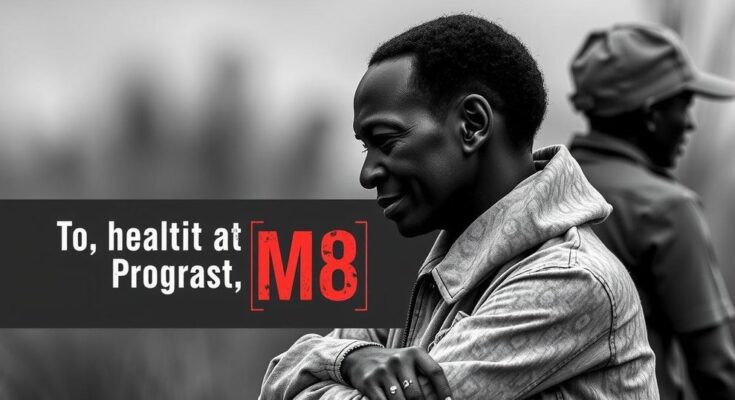Rwandan President Paul Kagame has refuted claims of Rwanda’s support for M23 rebels in the DRC, attributing their origins to Uganda. He criticized a UN report alleging military assistance from Rwanda and highlighted the historical context of the conflict while labeling accusations as ethnic bias. Kagame also condemned the international community for overlooking the realities in the DRC, suggesting that governance failures within the nation contribute to ongoing instability.
In Kigali, Rwandan President Paul Kagame has categorically denied allegations suggesting that Rwanda is supporting the M23 rebel group operating in the eastern Democratic Republic of Congo (DRC). Instead, President Kagame attributed the group’s primary fighters to their origins in Uganda, arguing that the conflict should not be framed as a Rwandan issue. His statements were a direct response to a United Nations report accusing the Rwandan government of military assistance to M23, which has been contributing to instability in the region.
During a press briefing, President Kagame stated, “The fighting was started by the main group that was in Uganda. So how did it become a Rwandan problem? What is the basis, and for how long do we explain this?” He provided context on the history of M23 fighters, asserting that many members had initially found refuge in Uganda after the rebel group’s disbandment in 2012-2013.
Kagame elaborated on the actions taken by Rwanda to disarm those fighters who had previously been sheltered, noting, “I remember specifically, those who came here were 560 whom we disarmed and gave back arms to the government of DRC at the time. The problems were never resolved.”
Contrasting Kagame’s narrative, the UN report presents evidence that includes claims of collaboration between Rwandan Defense Forces (RDF) and M23, detailing the use of advanced military technology and significant territorial gains made by M23. It documented that RDF-backed forces had expanded their control over strategic areas rich in resources, including mining sites, between April and November 2024.
President Kagame dismissed these allegations, interpreting them as influenced by ethnic biases, specifically towards the Rwandophones—Kinyarwanda speakers who have faced historical persecution in the DRC. He asserted, “The only reason Rwanda comes into question now… is because these are Rwandophones speaking Kinyarwanda.” Furthermore, he criticized the international community for neglecting to address the origins of the conflict, which he linked to the longstanding presence of the FDLR militia in Congo.
Kagame highlighted the inefficacy of international efforts, particularly the MONUSCO peacekeeping mission, pointing out, “after tens of billions of dollars spent over 30 years, what is there to show for it?” He voiced concerns that the DRC government was not being held accountable for its governance challenges, thus perpetuating the cycle of conflict.
As the situation in eastern Congo remains turbulent with M23’s continued territorial expansion, the international community’s focus shifts towards understanding the complexities of the conflict, including the allegations surrounding Rwanda’s involvement, which Kagame strongly refutes.
The ongoing conflict in Eastern Democratic Republic of Congo has deep historical roots tied to the aftermath of the Rwandan genocide in 1994, leading to a series of militia groups operating within Congolese territory. The M23, or March 23 Movement, is one such group, formed in 2012 by former members of the National Congress for the Defence of the People (CNDP). Accusations surrounding Rwanda’s involvement in the support of M23 highlight the broader regional tensions and the dynamics of ethnic communities affected by years of conflict. The United Nations has been vocal about these escalating tensions by accusing various military factions of territory-seizing actions which have magnified humanitarian crises in the region.
In conclusion, President Kagame’s rebuttal concerning Rwanda’s alleged involvement with the M23 rebel group emphasizes a counter-narrative focused on sourcing the conflict’s origins to Uganda. He firmly positions the struggle as one deeply rooted in historical ethnic tensions rather than a contemporary Rwandan issue. Despite divergent views presented in the UN’s report, Kagame maintains that accountability lies within the DRC government’s governance failures, highlighting the complexities of regional politics and international perceptions in addressing the ongoing crisis in eastern Congo.
Original Source: chimpreports.com




